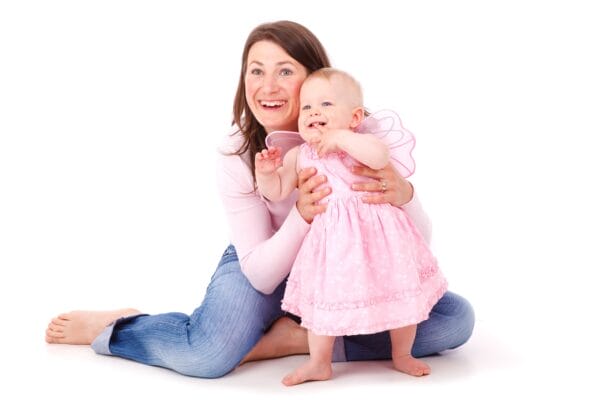Gentle Parenting Statistics: Nurturing the Next Generation
Gentle parenting, a philosophy that emphasizes empathy, respect, and understanding over punishment and strict discipline, is gaining traction among modern families. This approach to child-rearing focuses on building strong, positive relationships with children, guiding them with kindness and setting limits through communication and positive discipline practices. As more parents seek alternatives to traditional authoritarian parenting styles, gentle parenting statistics reveal insights into its prevalence and effectiveness.
In this article, we’ll explore the latest findings from parenting surveys, delve into American parenting styles research, and discuss the long-term impacts of gentle parenting.

Understanding Gentle Parenting
![]()
Gentle parenting is rooted in the belief that children deserve the same respect and kindness as adults. This method relies on guiding children rather than controlling them, aiming to teach self-discipline and emotional regulation through positive interactions. The core elements of gentle parenting include:
- Empathy: Recognizing and validating children’s feelings.
- Respect: Treating children as individuals with their own thoughts and needs.
- Understanding: Taking the time to see the world from a child’s perspective.
- Boundaries: Setting clear and consistent limits in a loving way.
These principles stand in contrast to more authoritarian methods that often rely on punishment and strict rules to elicit compliance.
Parenting Surveys: Measuring the Adoption of Gentle Parenting
![]()
Parenting surveys are invaluable tools for gauging the popularity and practice of gentle parenting. Recent studies indicate a growing trend towards this nurturing approach. For instance, a survey conducted by the American Psychological Association found that a significant number of parents are moving away from physical punishment, opting instead for communication and understanding to resolve conflicts.
Another survey by Zero to Three, a nonprofit dedicated to early childhood development, revealed that a majority of parents believe in the importance of nurturing their child’s emotional well-being, a fundamental aspect of gentle parenting. These surveys suggest a shift in American parenting styles, with an increasing emphasis on positive discipline practices.
American Parenting Styles Research: The Current Landscape
![]()
Research on American parenting styles offers a window into the practices and attitudes of parents across the nation. A study by the Pew Research Center highlighted a significant variation in parenting approaches, with many parents expressing support for the principles of gentle parenting, even if they do not label their style as such.
According to this research, a large number of parents prioritize building strong, positive relationships with their children, focusing on boosting their confidence and emotional intelligence. This aligns with the tenets of gentle parenting, suggesting that while the label may not be universally adopted, the practices are increasingly common.
Positive Discipline Practices: Alternatives to Punishment
![]()
Positive discipline is a cornerstone of gentle parenting, and it involves strategies that teach children how to behave properly without resorting to punishment. These practices include:
- Time-in: Encouraging children to take a break and discuss their feelings.
- Problem-solving: Working with children to find solutions to conflicts.
- Natural consequences: Allowing children to experience the outcomes of their actions in a safe environment.
- Positive reinforcement: Praising and rewarding desired behaviors to encourage their recurrence.
Research supports the effectiveness of these methods. For example, a study by the American Academy of Pediatrics discourages the use of physical punishment, citing its potential for long-term harm. Instead, the organization advocates for positive discipline techniques that foster healthy development.
Long-term Impacts of Gentle Parenting
![]()
The benefits of gentle parenting extend far beyond the immediate moments of child-rearing. Longitudinal studies provide compelling evidence of the long-term impacts of this parenting approach. Children raised with gentle parenting are shown to develop strong social skills, higher self-esteem, and better mental health outcomes.
For instance, a study published in the Journal of Family Psychology found that children who experienced positive parenting practices exhibited fewer behavioral problems and better academic performance. Another research by the National Institute of Child Health and Human Development linked responsive parenting, a key aspect of gentle parenting, to better language skills and cognitive development in children.
Additionally, gentle parenting can have a profound effect on the parent-child relationship. A strong bond built on trust and mutual respect can lead to better communication and cooperation as children grow into adolescence and adulthood.
Case Studies: Gentle Parenting in Action
![]()
Real-world examples illustrate the power of gentle parenting. Consider the case of a family that replaced time-outs with time-ins, where the child is encouraged to express their emotions and work through problems with parental guidance. This family reported a decrease in tantrums and an increase in cooperative behavior.
Another case study involved parents who focused on natural consequences rather than punishments. When their child neglected to put away toys, the parents allowed the child to experience the consequence of having a cluttered space, which led to the child taking responsibility for their belongings without resentment.
These examples demonstrate how gentle parenting practices can lead to positive outcomes, reinforcing the statistics and research that support this approach.
Conclusion: Embracing Gentle Parenting for a Brighter Future
![]()
Gentle parenting is more than just a trend; it is a movement towards a more compassionate and effective form of child-rearing. As gentle parenting statistics and surveys indicate, an increasing number of American families are adopting this approach, drawn to its promise of fostering well-rounded, emotionally intelligent children.
By emphasizing positive discipline practices and prioritizing the long-term impacts of gentle parenting, parents can cultivate a nurturing environment that supports their children’s growth and development. As research and case studies continue to affirm the benefits of this parenting style, it is clear that gentle parenting is paving the way for a more empathetic and respectful generation.
In conclusion, gentle parenting is not just beneficial for individual families; it holds the potential to shape a more understanding and kind-hearted society. By adopting gentle parenting practices, we invest in the emotional well-being of our children and, ultimately, the future of our communities.




